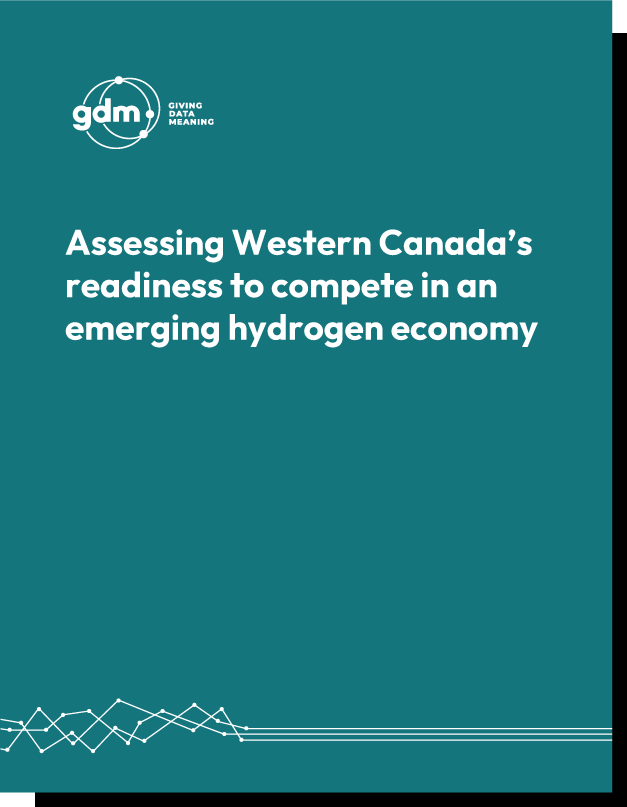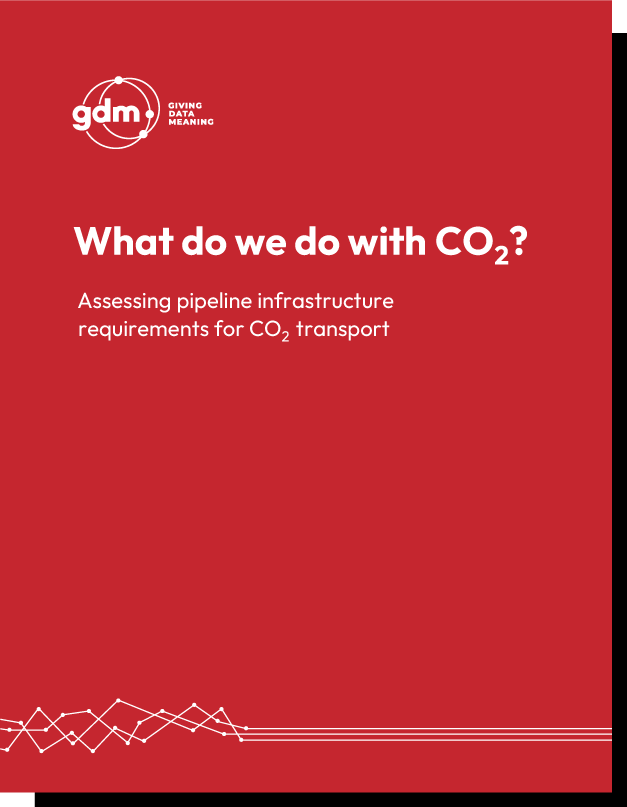
Around the world, countries are looking for ways to reduce carbon emissions to comply with environmental regulations and strengthen the global response. In Canada, this includes a commitment to reducing greenhouse gas (GHG) emissions by 30% by 2030, and a further plan by the federal government to achieve net-zero emissions by 2050.
As we try to navigate these new regulations, hydrogen is emerging as an equivalent alternative to traditional fossil fuels due to its high energy content and potential for zero carbon emissions. With our comprehensive dataset of Western Canadian oil and gas infrastructure, GDM has begun the process of assessing the potential for current assets to transport hydrogen as we potentially transition to a hydrogen economy.

Don’t get left behind. As the energy transition continues forward, stay informed and active with how your current pipeline assets can be repurposed for alternative fuel or CO2 transportation. With Converge, view potential pipelines and assets for future retrofits, while evaluating potential risks that different liquids bring to the table. See our white papers below for our analysis of how to compete in an emerging hydrogen economy, and what to do with CO2.
In this paper, we identify the journey that will lead us to an energy transition, from Supplemental Blending at low concentrations (up to 5% H2 by volume), through to a pure hydrogen economy.
We evaluate the readiness of current infrastructure, as well as considerations for safety, the environment, integrity management, and regulatory concerns. We also take a deeper dive into the requirements for assessing infrastructure to determine suitability to take on higher percentages of hydrogen, and what this will mean for end users, both now and in the future.




As a follow-on Analysis to “Assessing Western Canada’s Readiness to Compete in an Emerging Hydrogen Economy”, we have taken a deeper look at the potential for existing infrastructure to transport CO2.
In our new paper, ”What do we do with CO2? Assessing pipeline infrastructure requirements for CO2 transport”, we take a deeper dive into the integrity considerations, regulatory requirements, and infrastructure conditions needed for pipelines to be re-purposed for CO2 transport.
403-547-9100
support@gdm-inc.com
Geomatics Data Management Inc.
1300, 510 – 5 Street SW
Calgary, AB T2P 3S2
Comprehensive energy infrastructure data from across Canada and the Northern USA.
Powerful yet simple to use visualization, analysis, and reporting tools.
We help manage energy infrastructure risk on a national scale.
Your key partner for analyzing infrastructure and planning for the energy transition.
Custom reporting and analytics to help answer any operational question.
We support data file and regulatory submissions for all provincial regulators.
Oil and gas infrastructure data from every province in Canada and the Northern United States.
Our flagship software solution that provides complete infrastructure information wherever you are.
Connectivity Manager makes it easy to identify connections and understand your pipeline network.
The only integrity software that helps you manage a complete water crossing inspection program.
Access a complete inventory of any company’s energy assets in one location.
Stay ahead of the game with on-demand risk scores for every pipeline in Western Canada.
Reduce your exposure to incidents and regulatory audits with insights from your field verified data.
We partner with industry-leading companies to incorporate our data into multiple applications.